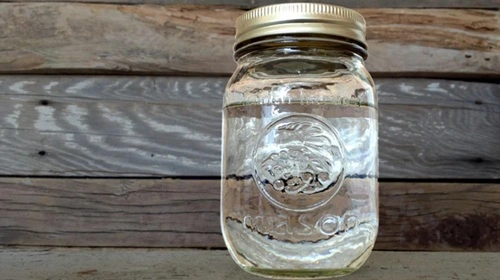Yes, it is actually illegal to make moonshine. That is certainly true in the case where you do not have any kind of federal permit to do so. But it is not that straightforward, actually; there are a lot of things and misconceptions about making moonshine at home or at your place. And just to stay on the right side of the law when going about making moonshine, we’ll recommend that you keep on reading to understand everything in a much better way.

What Is Moonshine, Really?
Moonshine is an intensely potent alcoholic beverage that individuals typically prepare in their homes without the necessary authorization or approval of any kind. The term is derived from the fact that it was traditionally produced secretly during the nighttime, by using the moon’s light, hence, simply to steer clear of being caught.
Moonshine is generally straightforward, non-aged, and made from corn, sugar, or any other grain. In the present time, a number of companies are allowed to sell “moonshine” at the stores; however, the majority of people consider it an unregulated and unprocessed homemade product when they talk about it.
Let’s go over the rest of it in a simple way.
How Moonshine Started
Moonshine is a product that has a long history in the United States. It is the story of the early settlers from Ireland and Scotland who had the skill of distilling in their luggage. As corn was a very easy crop to grow in the South, a lot of farmers started utilizing it to create brandy to have a side income.
The problem with moonshine started when the government decided to impose taxes on it in the late 1700s. As a result, the Whiskey Rebellion took place. Also, in the 1920s, during Prohibition, the illegal production of alcohol became more widespread, particularly in the Appalachian mountains.
So, Is It Legal to Make Moonshine at Home?
Moonshine production at home for personal consumption is not legal, no matter whether the product is intended for sale or not. That right there is the shortest and sweetest answer to this.
It is a requirement under federal law that you have an appropriate distilling permit. In the absence of such a permit, the fabrication of your own liquor is against the law, and that is just the way it is.
In most instances, it is quite lawful to have a still. However, when you start operating it for the production of alcohol without the required permit, then that is the point where the law intervenes.
Why so strict, though? Simply because alcohol made at home is untaxed. Authorities are aiming for total alcohol production to monitor and charge taxes accordingly. This is mainly the reason why illegal production is prohibited.
Why the Government Is Strict About It
Here are the main reasons:
- Safety risks: Home distillation of alcohol is not really a safe practice unless you have the proper knowledge and skills. A still that is not built properly can blow up. But the most frightening aspect of errors during the distillation process is the production of harmful substances such as methanol, which, if ingested, can lead to both loss of sight and death.
- Tax losses: Usually, alcohol is subject to high taxes. If a person produces it at home, the government will not receive the money that it would have made if the alcohol were sold.
- Fair competition: Strictly regulated alcohol manufacturers are required to adhere to numerous regulations and remit taxes. Illegally produced moonshine is exempt from all the regulations, which results in a “free ride” in terms of the tax and an unfair advantage.